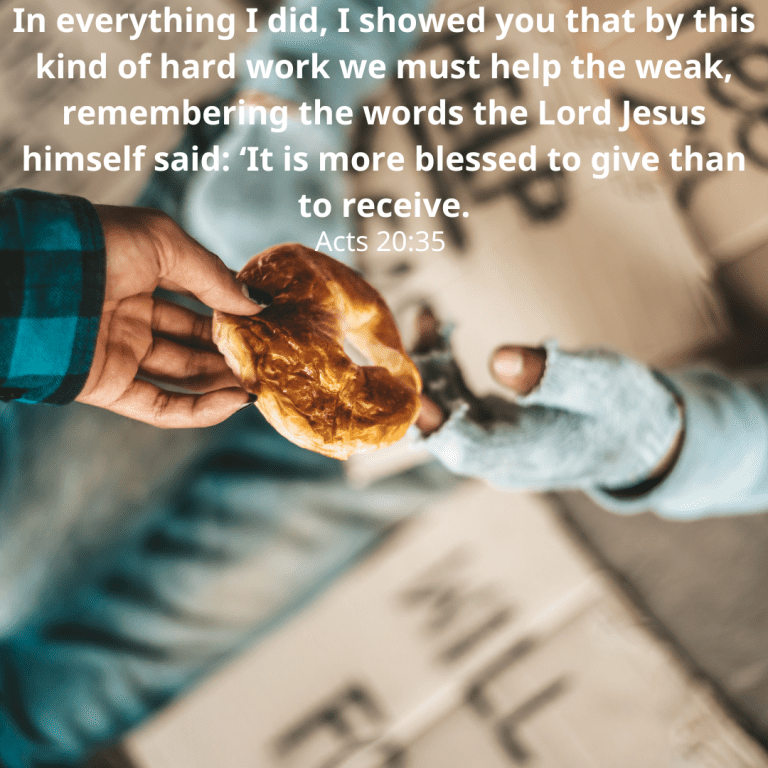Turn from Your Sins or Die
1 At that time some people were there who told Jesus about the Galileans whom Pilate had killed while they were offering sacrifices to God. 2 Jesus answered them, “Because those Galileans were killed in that way, do you think it proves that they were worse sinners than all other Galileans? 3 No indeed! And I tell you that if you do not turn from your sins, you will all die as they did. 4 What about those eighteen people in Siloam who were killed when the tower fell on them? Do you suppose this proves that they were worse than all the other people living in Jerusalem? 5 No indeed! And I tell you that if you do not turn from your sins, you will all die as they did.”
The Parable of the Unfruitful Fig Tree
6 Then Jesus told them this parable: “There was once a man who had a fig tree growing in his vineyard. He went looking for figs on it but found none. 7 So he said to his gardener, ‘Look, for three years I have been coming here looking for figs on this fig tree, and I haven't found any. Cut it down! Why should it go on using up the soil?’ 8 But the gardener answered, ‘Leave it alone, sir, just one more year; I will dig around it and put in some fertilizer. 9 Then if the tree bears figs next year, so much the better; if not, then you can have it cut down.’”
Jesus Heals a Crippled Woman on the Sabbath
10 One Sabbath Jesus was teaching in a synagogue. 11 A woman there had an evil spirit that had kept her sick for eighteen years; she was bent over and could not straighten up at all. 12 When Jesus saw her, he called out to her, “Woman, you are free from your sickness!” 13 He placed his hands on her, and at once she straightened herself up and praised God.
14 The official of the synagogue was angry that Jesus had healed on the Sabbath, so he spoke up and said to the people, “There are six days in which we should work; so come during those days and be healed, but not on the Sabbath!”
15 The Lord answered him, “You hypocrites! Any one of you would untie your ox or your donkey from the stall and take it out to give it water on the Sabbath. 16 Now here is this descendant of Abraham whom Satan has kept in bonds for eighteen years; should she not be released on the Sabbath?” 17 His answer made his enemies ashamed of themselves, while the people rejoiced over all the wonderful things that he did.
The Parable of the Mustard Seed
(Matthew 13.31Matthew 32Mark 4.30-32)18 Jesus asked, “What is the Kingdom of God like? What shall I compare it with? 19 It is like this. A man takes a mustard seed and plants it in his field. The plant grows and becomes a tree, and the birds make their nests in its branches.”
The Parable of the Yeast
(Matthew 13.33)20 Again Jesus asked, “What shall I compare the Kingdom of God with? 21 It is like this. A woman takes some yeast and mixes it with a bushel of flour until the whole batch of dough rises.”
The Narrow Door
(Matthew 7.13Matthew 14Matthew 21-23)22 Jesus went through towns and villages, teaching the people and making his way toward Jerusalem. 23 Someone asked him, “Sir, will just a few people be saved?”
Jesus answered them, 24 “Do your best to go in through the narrow door; because many people will surely try to go in but will not be able. 25 The master of the house will get up and close the door; then when you stand outside and begin to knock on the door and say, ‘Open the door for us, sir!’ he will answer you, ‘I don't know where you come from!’ 26 Then you will answer, ‘We ate and drank with you; you taught in our town!’ 27 But he will say again, ‘I don't know where you come from. Get away from me, all you wicked people!’ 28 How you will cry and gnash your teeth when you see Abraham, Isaac, and Jacob, and all the prophets in the Kingdom of God, while you are thrown out! 29 People will come from the east and the west, from the north and the south, and sit down at the feast in the Kingdom of God. 30 Then those who are now last will be first, and those who are now first will be last.”
Jesus' Love for Jerusalem
(Matthew 23.37-39)31 At that same time some Pharisees came to Jesus and said to him, “You must get out of here and go somewhere else, because Herod wants to kill you.”
32 Jesus answered them, “Go and tell that fox: ‘I am driving out demons and performing cures today and tomorrow, and on the third day I shall finish my work.’ 33 Yet I must be on my way today, tomorrow, and the next day; it is not right for a prophet to be killed anywhere except in Jerusalem.
34 “Jerusalem, Jerusalem! You kill the prophets, you stone the messengers God has sent you! How many times I wanted to put my arms around all your people, just as a hen gathers her chicks under her wings, but you would not let me! 35 And so your Temple will be abandoned. I assure you that you will not see me until the time comes when you say, ‘God bless him who comes in the name of the Lord.’”
Ṯɔrlacca ŋikiyaŋi ŋwɔdoŋw.
1 Ki-lɔɔmɔr-la ṯǝ kila nǝ lizi naani lokwo kinaŋw, nǝr andaci Yǝcu-ŋwɔ ŋiɽaŋali ŋǝthi lizi lir Jǝliiliiyyiin, kila limǝsi Biilaaṯɔs ɽeenye, kinaŋw kitticar-gwɔ Allah kiraama. 2 Nǝsi Yǝcu ǝŋnici nɔŋwsǝccǝŋw, “Ŋaaŋa laari ŋarnaŋw lizi kila lir Jǝliiliiyyiin lir lizi ligii beṯṯen kilizi-lǝ tatap lithaathɔ lǝthi Jǝliil-ŋwɔ, kaka niɽiryithirsi-ṯǝ ŋwɔ-a? 3 Bǝri-mǝ! Nyii kwǝccǝ-ŋǝsi-mǝ ŋwɔ, meere ɔrlacca ŋikiyaŋi ŋaalɔ ŋwɔḏoŋw mac tǝ, ǝtǝ ai tatap tok kaka ṯǝ ŋunduŋwsi. 4 Nǝ ŋǝthi kila lir wrii-dɔvokwɔppa limǝsi lithmin lɔɔlala aathitha mindaŋ nɔŋwsi ɽeenye kǝzir wǝni Silwaam. E-ta ŋaaŋa laarɔŋw lizi kila lithǝmthisi-lǝ ŋikiyaŋi tatap linannɔ Urshaliima? 5 Bǝri-mǝ! Nyii kwǝccǝ-ŋǝsi-mǝ ŋwɔ, meere ɔrlacca ŋikiyaŋi ŋaalɔ ŋwɔdoŋw mac tǝ, ǝṯǝ ai tatap tok kaka ṯǝ ŋunduŋwsi.”
Mǝthǝl kwǝthi kwɔɔtha kwiti kwǝṯi riiɽi mac.
6 E-ta nǝsi Yǝcu andaci mǝthǝlǝ-ŋgwɔ nɔŋwsǝccǝŋw, “Kwɔr kwɔnaanɔ kwette kwǝthi kwɔɔtha ki-jineene-na kwuuŋwun. Nɔŋweele ethi ulǝccǝ ŋwɔɔtha ŋweere, laakin nɔŋwseere kaṯṯica ŋweere mac. 7 E-ta nɔŋwɔccǝ kwɔɔrɔ kwǝṯi aŋraci jineeneya-ŋwɔ, ‘Iisa-ṯi nyii kwɔmǝthi yithlǝyu ṯoɽol yǝṯiny-yi iila kɔnɔŋw ethi ulǝcci kwɔɔtha-ŋgwɔ ŋwɔɔtha ŋweere, laakin ǝṯi-nyjeere inḏaci ŋweere mac. Uɽuthǝthǝlɔ kithaay! Aatha kwɔrɔ kwɔŋwɔ nanyji kɔnɔŋw domony ethi kiirasi wurǝyuŋi-lu?’ 8 Laakin nǝ kwɔr kwǝṯi aŋraci jineeneya ǝŋnici nɔŋwɔccǝŋw, ‘Yaa sǝyyiḏ duŋgwǝcǝ-ṯi kinnǝ kithlǝyu-ŋgɔ kette; mindaŋ nyii kwuuruci lubuŋi nyii rikaccalɔ, mindaŋ nyii balci lur. 9 Ŋwɔṯaŋw mɔŋw riiɽi nyɔɔrɔ kithlǝyu kaaɽu tǝ, a ŋiɽaŋal saawi beṯṯen, nǝ ŋiti ŋɔ mac tǝ, e-ta ǝmǝ uɽuthǝthǝlɔ kithaay’.”
Yǝcu mɔŋgwɔ sǝwi kwayɔ kwɔgwɔdɔma ṯɔɔɽɔwana.
10 Laamin lette lǝthi Sǝbiṯ nǝ Yǝcu aari @allima ki-majma@-na. 11 Nǝ kwaaw naani kwette kinaŋw kwǝthi ṯigɽimǝ-nǝ ṯigii, nɔŋw uumi ŋundu-ŋwɔ yithlǝyu wrii-dɔvokwɔppa; mindaŋ nɔŋw kwodmena nɔŋweere ǝthi ŋɔma mac ethi rillala cor-cor. 12 Mǝ Yǝcu ese tǝ, nɔŋw ɔrnɔṯi nɔŋwɔccǝŋw, “Kwaaw kwaalɔ ethiŋǝ kimǝthi kɔɔŋa duŋgwǝci!” 13 Nɔŋw kette rii ruuŋwun duŋgwun-lǝ, nǝ ŋwɔṯaŋw tɔc nɔŋw irllathala cor-cor, mindaŋ nɔŋw ɔrtatha Allah.
14 Nǝ rǝ-iis rǝthi majma@ urǝzi ṯɔgwori kaka nǝṯi-gwɔ Yǝcu sǝwi ki-laamin-la lǝni Sǝbiṯ, mindaŋ nɔŋw andaci lizi nɔŋwsǝccǝŋw, “Ŋwaamin ŋwɔnaani nyirlil ŋwɔthi-ŋi akkɔ ŋothɽor, nǝ ki-ŋwaamin-la ṯǝ ŋwɔ, nǝroro ŋwɔthi ṯisǝwǝ, laakin Sǝbiṯ tǝ, bǝri!”
15 Nǝ Kweeleny ǝŋnici nɔŋwɔccǝŋw, “Ŋaaŋa kila lǝṯi arri-ri ŋidiny! Kweere nyithak daŋgal-na kwiira kwǝṯi kǝḏu tithri ṯuuŋwun ya tǝɽiŋgǝŋi ki-lɔz-na lǝthi ŋirel ǝṯɔŋw-ri ele ethi iccǝ ŋaaw ki-laamin-la lǝthi Sǝbit! 16 Nǝ ŋǝthi kwaaw ŋgwɔ kwir tɔr tir tiira tǝthi Ibraahiim tikǝkkǝ Shiiṯaan yithlǝyu wrii-dɔvokwɔppa; e-ta ŋweere kǝdinni ki-laamin-la lǝthi Sabiṯ mac-a?” 17 Nǝ ṯɔrony mithǝ ṯuwǝnu ṯuuŋwun mǝrsi neŋne ŋǝthi ṯǝŋnicǝ ṯuuŋwun, nǝ lizi-tǝ, nǝr nyeŋlena ŋundu-ŋǝ kwomne-gi ŋgwa tatap kwǝrrǝŋw kwir ŋilim.
Mǝthǝl kwǝthi lɔɔla lǝthi kwatta.
(Maṯṯa 13:31-32Mɔrgus 4:30-32)18 Nǝ Yǝcu ɔṯalɔ nɔŋwaarɔŋw, “Ŋeeleny ŋǝthi Allah ŋaaɽinna aathaŋw? Ŋǝnyji biɽithinǝ aatha-gi? 19 Ŋaaɽinna lɔɔla lǝthi kwatta, lidimmǝ kwor kwette nɔŋw ǝnyjǝlɔ ki-ṯɔrɔny-na, mindaŋ nɔŋw peŋe nɔŋworo kwaaɽi, e-ta ǝṯi ndǝw iila ǝṯir-gwɔ kette yɔɽɔɔ yeeŋen ki-ril-la ruuŋwun.”
Mǝthǝl kwǝthi khamiira.
(Maṯṯa 13:33)20 Nǝ Yǝcu ɔṯalɔ kwokwony, nɔŋwaarɔŋw, “Aatha kwɔrɔ kwǝnyii-gi biɽithi Ŋeeleny-na ŋǝthi Allah? 21 Ŋaaɽinna khamiira kette kidimmǝ kwaaw kwette, nɔŋw-ŋgi uthǝthǝ yiilǝ yir lisǝfiyǝ ndǝn mindaŋ nǝr ole tatap.”
Ǝgwur wumǝṯinǝ.
(Maṯṯa 7:13-14, Maṯṯa 21-23)22 Nǝ Yǝcu ele nɔŋw ruu muḏun-ginǝ nǝ ŋwilli-ŋina tok, kwǝccǝ lizi @allima inḏi-ŋgwɔ etheele Urshaliim. 23 Nǝ kwette uṯicǝlɔ nɔŋwɔccǝŋw, “Kweeleny, lizi linḏi-ṯǝ ethi kilaaw leere caaw dak-ga?”
Nǝsi Yǝcu ǝŋnici nɔŋwsǝccǝŋw, 24 “Kwɔrmɔṯannar tetter ethi ǝnḏi ǝgwur-yi wumǝṯina; kaka ninḏi-gwɔ lizi littǝzir ethi tǝccici ethi-yi ǝnḏi, laakin areere ǝthi ŋɔma mac. 25 Mǝ kwizi kwǝthi dɔɔnɔŋwɔ diiɽi mɔŋw lǝŋthithǝ ǝgwur; na mǝ rilli ŋaaŋa par mindaŋ mǝ ippi lɔbaaba, mindaŋ mǝccǝŋw, ‘Kweeleny, kiṯṯicǝ-nyji lɔbaaba!’ E-ta ŋwɔ ǝŋnicǝ ŋaaŋwɔsi ŋwɔccǝ ŋaaŋwɔsiŋw, ‘Nyii kwiti kwilŋithi-ŋǝsi mac ŋaaŋa lǝthi ṯakaŋw lɔrɔ!’ 26 E-ta ǝŋnici ǝccǝŋw, ‘A kwithnar-pa na nǝr ii dɔŋw tok; nǝ ǝtaari @allima ki-lishaar-la lǝri tok!’ 27 Laakin ŋwɔsi ǝccǝ kwokwony-ŋwɔ, ‘Nyii kwende kwilŋithi-ŋǝsi ŋaaŋa lǝthi ṯaka-ŋwɔ lɔrɔ. Tuccǝrnyiinǝ kithaay ŋaaŋa tatap lir lothɽor lǝthi ŋikiya!’ 28 Ŋaaŋa limbaami aariŋw, nǝ a yee yiŋath-na tok, meese Ibraahiim-ŋwɔsi Is-haag-gi, nǝ Ya@guub-ŋǝ liɽii-ŋǝli tatap ki Ŋeeleny-na ŋǝthi Allah, nǝ ŋaaŋa tǝ limǝ kǝṯṯini par! 29 Lizi linḏi ethiila aaŋwɔn-yi, nǝ ǝzir-yi wǝṯi-yi aaŋwɔn ɔɽi, nǝ wuthǝri-ŋgi nǝ ŋwɔdoŋw-ŋala-ŋgi, ǝri naanalɔ ki Ŋeeleny-na ŋǝthi Allah. 30 Ŋwɔṯaŋw a kila liŋna ǝri aaɽitha kwaathan, nǝ kila linaanɔ kwaathan ǝri eŋne.”
Ṯamɽa ṯǝthi Yǝcu ṯamɽaŋw-thi Urshaliim-ŋwɔ.
(Maṯṯa 23:37-39)31 Ki-lɔɔmɔr-la ṯǝ kila lette-lette, nǝ Lifirriisiiyyiin iila lokwo naanɔ-gwɔ Yǝcu nǝrǝccǝŋw, “Laazim a ruu kithaay kǝzir wɔ, mindaŋ ele kǝzir wir ter, kaka naŋnaŋa-gwɔ Hiiruuḏus ethi ɽeenye.”
32 Nǝsi Yǝcu ǝŋnici nɔŋwsǝccǝŋw, “Nḏir andaci kwɔthlɔma-ŋgwa ǝccǝŋw, ‘Nyii ŋgwɔ kwɔllilli rigɽimǝ rigii kithaay, nyji sǝwi aŋwɔnɔ, nǝ ŋɔrpɔ tok, nǝ ki-laamin-la kila lir ṯɔɽɔl nyii rattasi ŋothɽor ŋiinyi’. 33 Laakin laazim nyii naani ki-thaay-la ṯiinyi aŋwɔnɔ, ŋɔrpɔ nɔ ŋɔrpɔ ŋgwala, kaka niti nɔvthannar-gwɔ mac ethi ɽeenye kwiɽiiya kǝzir weere mac illi Urshaliim.
34 “Athrɔ Urshaliim! Athrɔ Urshaliim! Ŋa ŋgwɔ kwǝṯi endindinye liɽiiyaŋi, nǝ ǝṯi accicatha yaavɔra-lɔ kiya yusicǝ-ŋǝsi Allah! Nyii kwǝṯi naŋni beṯ-beṯṯen nyaamin nyittǝzir ethi alla rii-na mindaŋ ethi aaɽasi lizi lɔɔŋwa dɔŋw, kaka kagrɔ kǝṯi aaɽasi nyagwrɔŋi dɔŋw ki-yivɔɔ-na yuuŋwun; laakin nirnyeere duŋgwǝci mac! 35 Ṯaŋw Heikal waalɔ winḏi ethi arṯinnalɔ. Nyii kwɔŋǝsi andaci, ŋaaŋa liti lǝnyii ese mac mindaŋ mǝ lɔɔmɔr iila linḏiŋǝ-li ethaarɔŋw, ‘Kwɔrtanni ŋgwa kwinḏi yiriny-yi yǝthi Kweeleny!’ ”


